Joe Biden scraps planned visit to Australia, Papua New Guinea to focus on debt limit talks
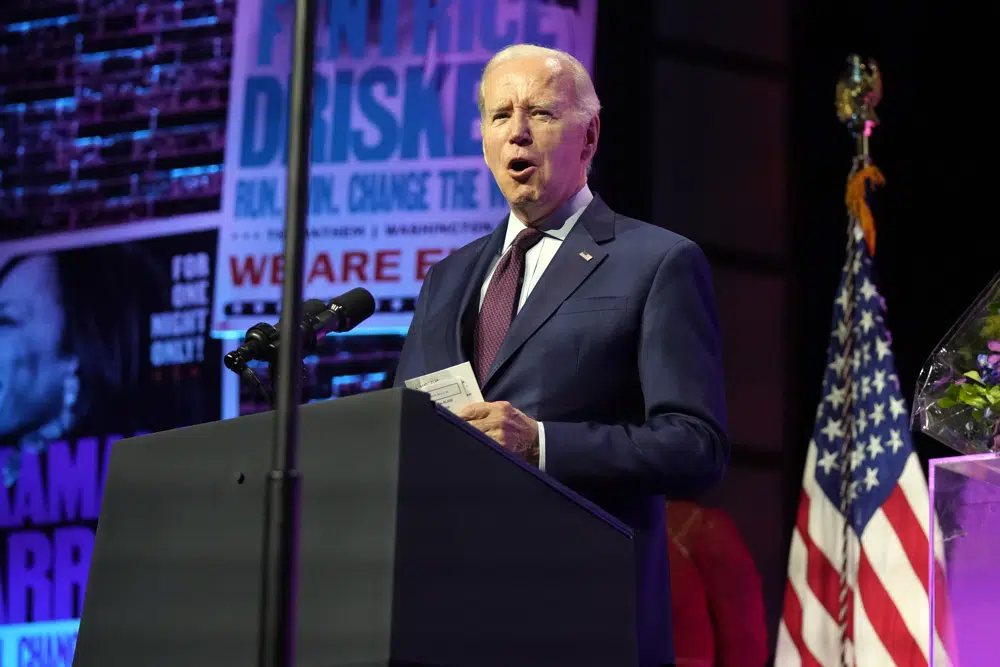
President Joe Biden said Tuesday he’s curtailing his upcoming trip to the Indo-Pacific, scrapping what was to be a historic stop in Papua New Guinea as well as a visit to Australia for a gathering with fellow leaders of the so-called Quad partnership so he can focus on debt limit talks in Washington. The scuttling of two of the three legs of the overseas trip is a foreign policy setback for an administration that has made putting a greater focus on the Pacific region central to its global outreach. Biden said he still plans to depart on Wednesday for Hiroshima, Japan, for a Group of Seven summit with leaders from some of the world’s major economies. He will return to the U.S. on Sunday. “I’m postponing the Australia portion of the trip and my stop in Papua New Guinea in order to be back for the final negotiations with congressional leaders,” Biden said at the start of a Jewish American Heritage Month event at the White House. He added, “The nature of the presidency is addressing many of the critical matters all at once. So I’m confident we’re going to continue to make progress toward avoiding the default and fulfilling America’s responsibility as a leader on the world stage.” Biden said he spoke to Australian Prime Minister Anthony Albanese earlier on Tuesday to inform him he was postponing a visit to Australia and invited him to Washington for an official state visit at a yet-to-be determined date. White House staff broke the news to Papua New Guinea Prime Minister James Marape. White House officials did not offer an immediate response to questions about when Biden might reschedule visits to the two countries. “Revitalizing and reinvigorating our alliances and advancing partnerships like the Quad remains a key priority for the President,” White House press secretary Karine Jean-Pierre said. “This is vital to our ability to advance our foreign policy goals and better promote global stability and prosperity. We look forward to finding other ways to engage with Australia, the Quad, Papua New Guinea, and the leaders of the Pacific Islands Forum in the coming year.” Japanese Prime Minister Fumio Kishida has invited Albanese, Indian Prime Minister Narendra Modi as well as Pacific Island leaders to come to Hiroshima during the G-7. Albanese, in an Australian Broadcasting Corp. interview, said that the Quad leaders are now hoping to hold a meeting in Hiroshima. “We’ll also hopefully be able to find a time when the four of us can sit down,” Albanese said. “We will have to organize the logistics of the Quad meeting now in Sydney, and we’ll be discussing with our partners in the U.S., but also Japan and India over the next day or so.” Biden had been scheduled to travel on to Papua New Guinea to meet with Pacific Island leaders and then to Australia for a meeting of the leaders of the Quad partnership, made up of the U.S., Australia, India, and Japan. The Papua New Guinea stop would have been the first visit by a sitting U.S. president to the island country of more than 9 million people. The Quad partnership first formed during the response to the 2004 Indian Ocean tsunami that killed some 230,000 people. Since coming into office, Biden has tried to reinvigorate the Quad as part of his broader effort to put greater U.S. focus on the Pacific and counter increasing economic and military assertiveness by China in the region. Biden announced his decision soon after he wrapped up a meeting on Tuesday afternoon with Republican House Speaker Kevin McCarthy, Senate Minority Leader Mitch McConnell, R-Ky., Senate Majority Leader Chuck Schumer, D-N.Y., and House Minority Leader Hakeem Jefferies, D-N.Y., for talks on the debt limit standoff. Earlier Tuesday, White House National Security Council spokesman John Kirby expressed administration officials’ frustration that the debt talks are having an impact on the president’s dealings on the international stage. “We wouldn’t have to have this conversation. I wouldn’t have to answer these questions if Congress just did the right thing,” Kirby said. Some Republican lawmakers questioned Biden’s decision to travel overseas considering the consequences of the debt limit talks. “I think he should not leave, and he should focus on the debt limit here at home,” Sen. Rick Scott, R-Fla. With the brief stop in Papua New Guinea to meet with Pacific Island leaders, Biden had hoped to demonstrate that the United States is committed to remaining engaged for the long term in the Pacific Islands. The area has received diminished attention from the U.S. in the aftermath of the Cold War, and China has increasingly filled the vacuum — through increased aid, development, and security cooperation. Biden has said that he’s committed to changing that dynamic. Last September, Biden hosted leaders from more than a dozen Pacific Island countries at the White House, announcing a new strategy to help to assist the region on climate change and maritime security. His administration also recently opened embassies in the Solomon Islands and Tonga, and has plans to open one in Kiribati. As vice president, Biden saw up close how domestic politics can complicate foreign policy during the 2013 government shutdown. President Barack Obama was forced to bail on attending the Asia-Pacific Economic Cooperation summit and the East Asia Summit in Brunei as well as a visit to Malaysia and the Philippines in the midst of a government shutdown as he negotiated with GOP leaders. President Bill Clinton opted to skip his scheduled participation in the APEC summit in Japan in the midst of the 1995 government shutdown. He opted to send Vice President Al Gore in his place. Republished with the permission of The Associated Press.
Tommy Tuberville: Big government uses climate change warnings to “grow their own power”
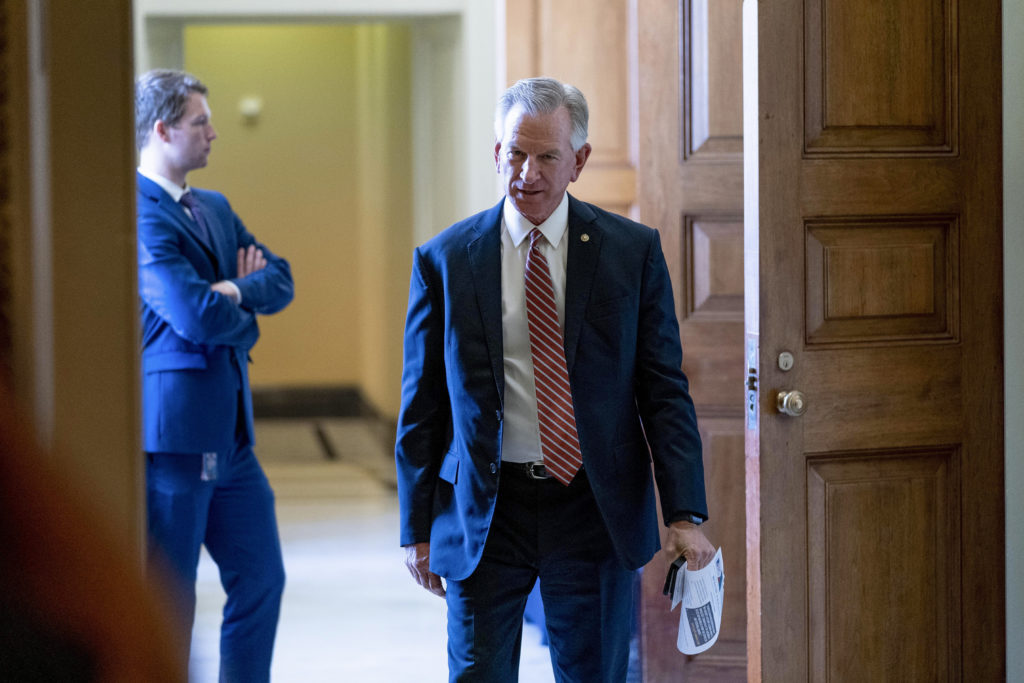
On Tuesday, U.S. Senator Tommy Tuberville spoke on the U.S. Senate floor to denounce climate alarmists and encourage increased production of American energy. Tuberville said that alarmists who claim that “we’re near the edge of a climate cliff” are making “a prediction they know is impossible to prove and has never come true.” Tuberville said that American energy is significantly cleaner than the majority of notable energy producers in the world and that the United States should expand domestic energy production to support our economy and lower energy costs for American families. “We should be doing everything we can to fix the problems created by the government and get Americans back on their feet by unleashing our economic potential and opening doors of opportunity,” Sen. Tuberville said. “Unfortunately, too many here in Washington are still focused on growing the size of government and adding regulations they say will save the environment. However, very rarely does making the government larger benefit the American taxpayers.” “For decades, fans of big government have used climate change warnings to grow their power,” Tuberville continued. “They have claimed we’re near the edge of a climate cliff — a prediction they know is impossible to prove and has never come true. Of course, they claim, the only solution to this cooked-up crisis is for you — the American taxpayer — to sacrifice even more of your freedoms to tackle this so-called climate dilemma.” “Well, I think I speak for most Americans when they say, ‘no way.’” Tuberville argued. “We should say no to overpriced electric cars that are made with cobalt processed and sold by China — and plugged into a charger that’s powered by fossil fuels anyway…No to fake meat products that taste as bad as their price and will eventually kill our livestock producers’ way of life…We say no to unreliable energy sources and the skyrocketing utility bills we’re seeing today because America cannot operate and achieve economic success without fossil fuels… And no to trillions and trillions of taxpayer dollars spent on an agenda that’s based only on the rantings of failed candidates like Al Gore and John Kerry, global elites at a ski resort, and a European teenager.” “Some may call me a climate change denier, so I want to be clear,” Tuberville added. “As a conservative, I believe in protecting our environment, conserving our natural resources, and doing what we can to make sure Americans live in a clean, safe environment in communities that will last for generations to come. But I do not believe that we need to give up our livelihoods, our way of life, our access to affordable food and energy because of false claims that we are years — just a few years away — from extinction.” Tommy Tuberville is serving his first term representing Alabama in the United States Senate after 40 years as a coach, teacher, and broadcaster. Tuberville is a member of the Senate Armed Services, Agriculture, Veterans Affairs, and HELP Committees. To connect with the author of this story or to comment, email brandonmreporter@gmail.com.
Past U.S. presidents, VPs asked to recheck for classified docs
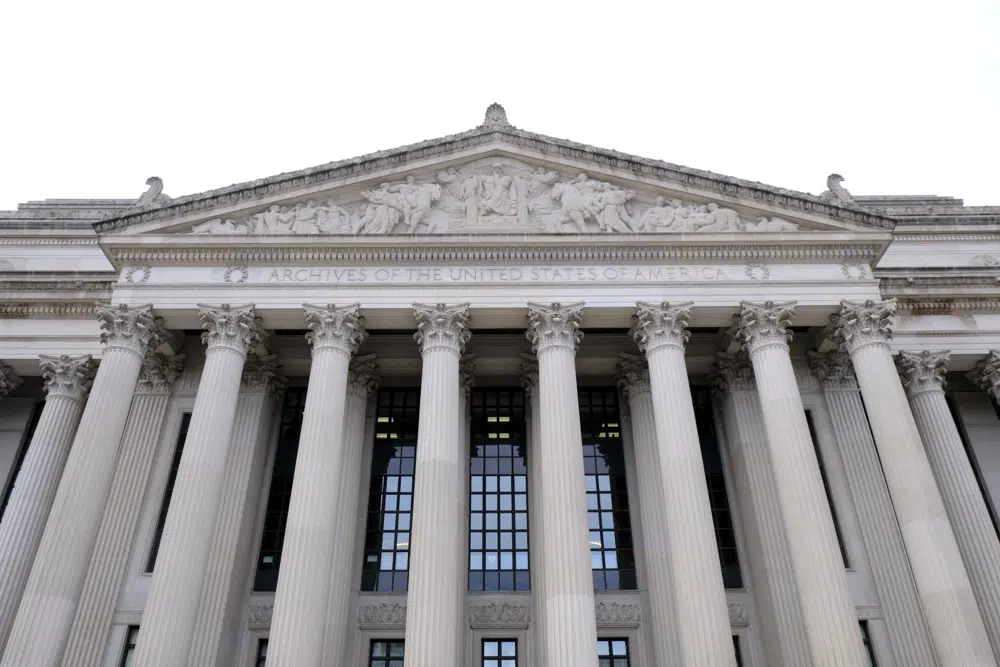
The National Archives has asked former U.S. presidents and vice presidents to recheck their personal records for any classified documents following the news that President Joe Biden and former Vice President Mike Pence had such documents in their possession, two people familiar with the matter said Thursday. The Archives sent a letter Thursday to representatives of former presidents and vice presidents extending back to Ronald Reagan to ensure compliance with the Presidential Records Act, according to the two people, who spoke on condition of anonymity because they were not authorized to speak about investigations. The act states that any records created or received by the president are the property of the U.S. government and will be managed by the archives at the end of the administration. The Archives sent the letter to representatives of former Presidents Donald Trump, Barack Obama, George W. Bush, Bill Clinton, George H.W. Bush, and Ronald Reagan, and former Vice Presidents Pence, Biden, Dick Cheney, Al Gore, and Dan Quayle, they said. The letter was first reported by CNN. Spokespeople for former presidents Trump, Obama, George W. Bush, and Clinton and former vice presidents Pence, Dick Cheney, Al Gore, and Dan Quayle did not immediately respond to requests for comment. Biden’s lawyers came across classified documents from his time as vice president in a locked cabinet as they were packing up an office he no longer uses in November. Since then, subsequent searches by the FBI and Biden’s lawyers have turned up more documents. Former Vice President Pence, too, this week, discovered documents and turned them in after saying previously he did not believe he had any. The White House did not immediately respond to a request for comment, but the searches by Biden’s attorneys and the FBI appear to fulfill the Archives’ request. The Archives had no comment. Handling of classified documents has been a problem off and on for decades, from presidents to Cabinet members and staff across multiple administrations stretching as far back as Jimmy Carter. But the issue has taken on greater significance since former President Donald Trump willfully retained classified material at his Florida estate, prompting the unprecedented FBI seizure of thousands of pages of records last year. Attorney General Merrick Garland appointed a special counsel to investigate Trump’s handling of the documents and also Biden’s. It turns out that officials from all levels of government discover they are in possession of classified material and turn it over to authorities at least several times a year, according to another person familiar with the matter who spoke on the condition of anonymity due to the sensitive nature of classified documents. Current and former officials involved in the handling of classified information say that while there are clear policies for how such information should be reviewed and stored, those policies are sometimes pushed aside at the highest levels. Teams of national security officials, secretaries, and military aides who share responsibility for keeping top-level executives informed — and the executives themselves — may bend the rules for convenience, expediency or sometimes simple carelessness. While much of the attention has been on classified information, the Presidential Records Act actually requires that, from the Reagan administration onward, all records must be transferred to the Archives regardless of classification. It’s against federal law to have classified documents at an unauthorized location, but it’s only a crime if it was done intentionally. Speaking Thursday at an unrelated news conference, FBI Director Christopher Wray said that though he could not discuss any specific ongoing investigation, “We have had for quite a number of years any number of mishandling investigations. That is, unfortunately, a regular part of our counterintelligence division’s and counterintelligence program’s work.” He said there was a need for people to be conscious of laws and rules governing the handling of classified information. “Those rules,” he said, “are there for a reason.” Republished with the permission of The Associated Press.
Voters in some key swing states to decide on voting access
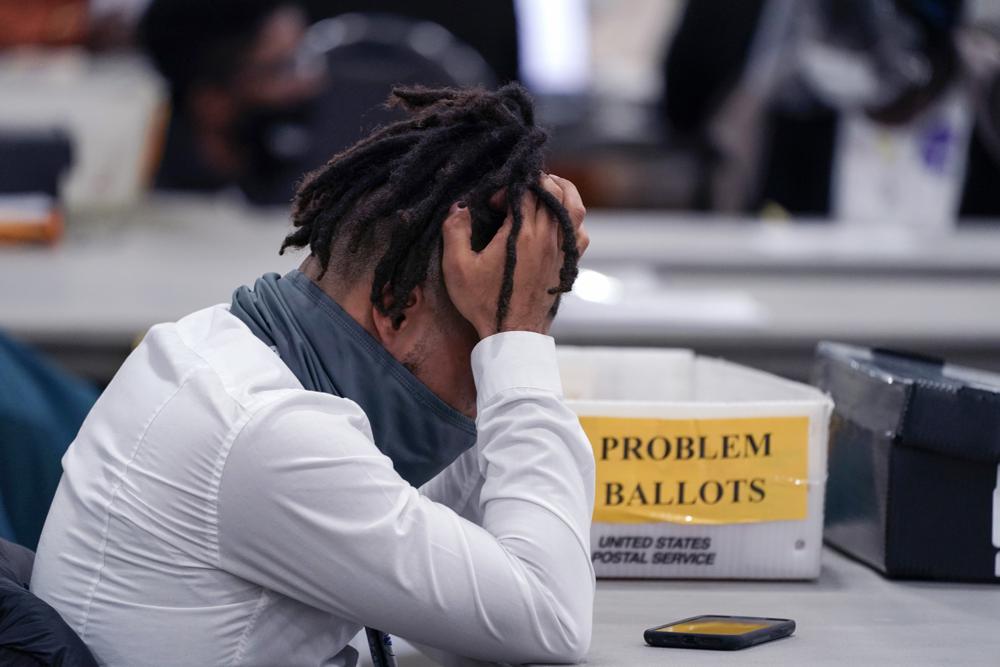
All but lost in the shadow of major contests for U.S. Senate and governor, voters in some battleground states will be deciding ballot proposals this November that could reshape the way they vote in the next presidential election. In Arizona, scene of the closest presidential contest in 2020, the question is whether to require more identification to vote in the future. In Michigan, another swing state, voters will consider whether to make it easier to cast early ballots. Voting-related proposals will be on the ballot in several other states, including a measure to adopt ranked-choice voting in Nevada that — if approved this year — would need a second vote in 2024 to take effect.” Most of the measures are garnering little attention but could have profound effects on voting in some of the most politically competitive states for years to come. They mark an escalation of what voting expert Jon Sherman describes as “the voting wars” — battles between Democrats, Republicans, and activist groups over laws specifying how people register, obtain mail-in ballots, prove their identity, and cast ballots. “The parties and their allies are fighting over every last voting rule and trying to make predictions about how they think it will help or hurt their chances of winning, particularly in closely competitive states,” said Sherman, litigation director and senior counsel at the Fair Elections Center, a nonprofit that advocates for voting access. Efforts to change voting laws ramped up after the 2000 presidential election when a U.S. Supreme Court decision in Florida’s exceptionally close race gave Republican George W. Bush the victory over Democrat Al Gore. It intensified after the 2020 election, as Republican President Donald Trump refused to acknowledge his loss to Democrat Joe Biden while pressing false claims of widespread fraud, and some Republican-led states responded by passing restrictive voting laws. Arizona, which Biden won by about 10,500 votes, was one center of controversy. After a six-month review focused on Arizona’s largest county, a Trump-friendly firm hired by Republican state lawmakers ended up with vote results confirming Democrat Biden’s victory. Republicans who control the Legislature subsequently placed a proposed constitutional amendment on the November ballot that would strengthen voter identification laws. It would require people voting in person to show a photo ID, and eliminate a current alternative of providing two documents bearing a person’s name and address, such as a recent utility bill and bank statement. People voting with mailed ballots — the vast majority in Arizona — would have to list their date of birth and either their driver’s license number, a state identification number, or the last four digits of their Social Security number. Republican state Sen. J.D. Mesnard, who sponsored the measure, said the intent is to “make the election as secure as possible” while addressing “a growing crisis in confidence” that could discourage some people from voting. But rather than reassuring voters, tougher ID requirements could dissuade some from voting at all and actually lead to fraud by exposing personal information, said Darrell Hill, policy director of the American Civil Liberties Union of Arizona, which opposes the measure. “You’re opening people up to greater potential identity theft,” Hill said. Only a few states — Georgia, Minnesota, Ohio — have similar proof-of-identity measures for mailed ballots, according to the National Conference of State Legislatures. Arkansas requires voters to provide a copy of a photo ID when returning a mailed ballot. In Michigan next month, a ballot initiative would pre-empt Republican attempts to tighten photo identification laws by amending the state Constitution to include the current alternative of signing an affidavit. It also would expand early voting options, require state-funded return postage and drop boxes for absentee ballots, and specify that the Board of State Canvassers has only a “clerical, nondiscretionary” duty to certify election results. Trump allies had tried to persuade canvassers to delay certifying the 2020 results. The goal of the new initiative is to “enhance the integrity and security of the elections by sort of modernizing how they’re administered and making them more accessible,” said Khalilah Spencer, president of Promote the Vote, which backs the measure. On the other side, Michigan Republican Party spokesman Gustavo Portela said the initiative “opens the door up for fraud” through the combination of early voting and a constitutional exception to showing photo ID. Just four states — Alabama, Connecticut, Mississippi, and New Hampshire — lack an in-person early voting option for all voters. Connecticut’s November ballot will feature a proposed constitutional amendment authorizing the Democratic-led General Assembly to create an early voting law. A similar ballot proposal failed in 2014. Supporters in Connecticut hope this time is different — both because the new version is more clearly written and because the vote comes after the coronavirus pandemic heightened awareness about early voting. “The idea that everybody has free time on a Tuesday between 6 a.m. and 8 p.m. — and that’s their only opportunity to participate in our democracy — is a little dated,” said Democratic state Sen. Mae Flexer, co-chair of the Connecticut legislative committee that sponsored the measure. In Nebraska, Republicans haven’t been able to get a voter photo ID bill through the nonpartisan Legislature. But it will appear on the November ballot, thanks to an initiative petition drive bankrolled by Marlene Ricketts, the mother of term-limited Republican Gov. Pete Ricketts. Civic Nebraska, a voting rights group opposed to the measure, describes it as “a solution in search of a problem.” “There’s not an iota of evidence in Nebraska that says we would need this extra step” to vote, said Civic Nebraska spokesman Steve Smith. Gov. Ricketts acknowledged during a recent radio call-in show that there hasn’t been much election fraud. But he said, “one of the things that came out of the 2020 election is that people had concern about the integrity of our voting systems.” There is no evidence of widespread fraud in the 2020 election. Judges have turned away dozens of challenges by Trump and his allies, multiple state reviews have confirmed the results, and Trump’s own Department of Justice concluded the election outcome was accurate. Nevada’s proposed constitutional amendment would advance the top
Alabama GOP voters decide secretary of state, other nominees
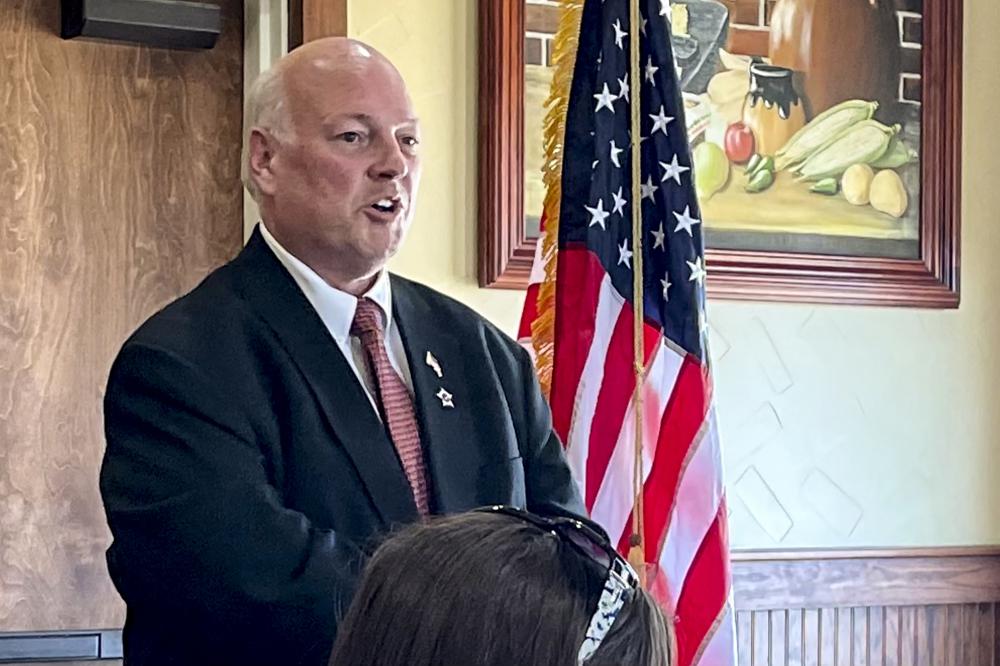
Republican voters in Alabama will decide their party’s nominees in four statewide races Tuesday after campaigns in which many of the candidates touted their devotion to faith, former President Donald Trump, and guns. A statewide constitutional amendment to fund park improvements also is on the ballot. Here are the key races to watch: SECRETARY OF STATE Four Republicans and one Democrat are on the primary ballot to succeed GOP incumbent John Merrill as Alabama’s top elections officer, secretary of state. Ed Packard, who worked in the secretary of state’s elections division for nearly 25 years, is seeking the Republican nomination in a field that includes Jim Zeigler, who was barred from running again as state auditor by term limits; state Rep. Wes Allen of Troy, who served nearly a decade as probate judge in Pike County; and Christian Horn, a GOP activist and business owner from Madison County. None of the four candidates has raised major complaints about election problems in Alabama, which is controlled by Republicans and voted heavily for President Donald Trump in 2020. But all have talked about measures needed to tighten election security, an issue popularized among conservatives by Trump’s false claims that the 2020 election was stolen by President Joe Biden. Merrill couldn’t seek the office again after serving two terms. The eventual Republican nominee will face Democrat Pamela J. Laffitte of Mobile in November. ATTORNEY GENERAL Alabama Attorney General Steve Marshall faces a single primary challenger as he seeks a second four-year term as the state’s main law enforcement official. First appointed to the position in 2017, Marshall is opposed by Harry Bartlett Still III, an attorney from Daphne. Marshall, who previously served as district attorney in Marshall County, regularly opposes initiatives launched by Democratic President Joe Biden, including vaccination requirements for COVID-19 and federal policies along the border with Mexico, and he testified against the nomination of now-Justice Ketanji Brown Jackson to the U.S. Supreme Court. Still contends corruption is rampant in state government and that the agency that oversees police standards and training in the state needs to be reorganized to increase public trust in law enforcement. He also supports replacing Alabama’s heavily amended constitution, passed in 1901 to ensure white supremacy. The winner will face Democratic nominee Wendell Major, police chief in the Birmingham-area city of Tarrant, in November. STATE AUDITOR Candidates for Alabama state auditor typically emphasize the importance of keeping track of state property, but three Republicans seeking the office this year added another talking point in the era of false claims about a stolen presidential vote — election security. Stan Cooke, a pastor from Kimberly; Rusty Glover, a former history teacher from Semmes who served in the state Senate; and state Rep. Andrew Sorrell of Muscle Shoals all are emphasizing the auditor’s role of selecting county registrar boards as they seek the office. Almost directly echoing false claims by former President Donald Trump, Cooke’s campaign website says the state must get ahead of Democrats before they “try and steal our elections as they did in Pennsylvania, Arizona, and even our neighbor to the east, Georgia.” The incumbent, Jim Zeigler, couldn’t seek reelection after serving two terms and is running for secretary of state. Winning the Republican nomination is tantamount to election because no Democrat qualified to run for auditor. SUPREME COURT One Republican candidate for the Alabama Supreme Court is trying to woo voters with a mix that includes his devotion to God and former President Donald Trump. The other is emphasizing her experience in the courtroom — and her gun. Greg Cook, an attorney from metro Birmingham, and Debra Jones, a circuit judge who hears cases in Calhoun and Cleburne, are seeking the Republican nomination for the Place 5 Supreme Court seat held by Justice Mike Bolin, who is retiring. Cook is portraying himself as a “Trump-tough” Republican who was a Trump delegate and represented conservative interests in the 2000 presidential recount contest in Florida between Al Gore and President George W. Bush. Aside from partisan and legal qualifications, Cook’s campaign resume features his longtime church membership and leadership. Jones released a commercial late in the campaign boasting of her support for Trump, her short stature — “She’s 5 feet of concrete” — and a case in which she sentenced a person convicted of child molestation to more than 1,000 years in prison. The spot shows her firing a handgun and saying the only reason she didn’t put the person “under the jail” was “the liberals” wouldn’t let her. All nine members of the court are Republicans, and the winner of the Place 5 race will be a heavy favorite over Democrat Anita L. Kelly, a judge in Montgomery, in the general election. CONSTITUTIONAL AMENDMENT Voters will decide whether to let the state go into debt for $85 million in bonds to spruce up Alabama’s state parks and historical sites. A statewide constitutional amendment on the ballot would provide $80 million in funding for state park projects that include adding and improving camping sites, adding wireless service, upgrading electrical and water service, replacing playgrounds, constructing swimming pools, and repairing parts of Gulf State Park damaged by Hurricane Sally. The remaining $5 million would go to the Alabama Historical Commission for acquiring, renovating, and maintaining historical parks around the state. The agency wouldn’t be allowed to use the money at Confederate Memorial Park in Marbury. The park is funded by a tax that was originally intended for needy Confederate veterans. Republished with the permission of The Associated Press.
Offices including secretary of state contested in Alabama

The campaigns for U.S. Senate and governor have gotten the most attention leading up to Tuesday’s primary in Alabama, but five other statewide races are on the ballot. With multiple candidates in some races, some nominations may not be decided until after runoff elections scheduled for June 21. Here are some of the key races to watch: SECRETARY OF STATE Four Republicans and one Democrat are on the primary ballot to succeed GOP incumbent John Merrill as Alabama’s top elections officer, secretary of state. Ed Packard, who worked in the secretary of state’s elections division for nearly 25 years, is seeking the Republican nomination in a field that includes Jim Zeigler, who was barred from running again as state auditor by term limits; state Rep. Wes Allen of Troy, who served nearly a decade as probate judge in Pike County; and Christian Horn, a GOP activist and business owner from Madison County. None of the four candidates has raised major complaints about election problems in Alabama, which is controlled by Republicans and voted heavily for President Donald Trump in 2020. But all have talked about measures needed to tighten election security, an issue popularized among conservatives by Trump’s false claims that the 2020 election was stolen by President Joe Biden. Merrill couldn’t seek the office again after serving two terms. The eventual Republican nominee will face Democrat Pamela J. Laffitte of Mobile in November. ATTORNEY GENERAL Alabama Attorney General Steve Marshall faces a single primary challenger as he seeks a second four-year term as the state’s main law enforcement official. First appointed to the position in 2017, Marshall is opposed by Harry Bartlett Still III, an attorney from Daphne. Marshall, who previously served as district attorney in Marshall County, regularly opposes initiatives launched by Democratic President Joe Biden, including vaccination requirements for COVID-19 and federal policies along the border with Mexico, and he testified against the nomination of now-Justice Ketanji Brown Jackson to the U.S. Supreme Court. Still contends corruption is rampant in state government, and that the agency that oversees police standards and training in the state needs to be reorganized to increase public trust in law enforcement. He also supports replacing Alabama’s heavily amended Constitution, passed in 1901 to ensure white supremacy. The winner will face Democratic nominee Wendell Major, police chief in the Birmingham-area city of Tarrant, in November. STATE AUDITOR Candidates for Alabama state auditor typically emphasize the importance of keeping track of state property, but three Republicans seeking the office this year added another talking point in the era of false claims about a stolen presidential vote — election security. Stan Cooke, a pastor from Kimberly; Rusty Glover, a former history teacher from Semmes who served in the state Senate; and state Rep. Andrew Sorrell of Muscle Shoals all are emphasizing the auditor’s role of selecting county registrar boards as they seek the office. Almost directly echoing false claims by former President Donald Trump, Cooke’s campaign website says the state must get ahead of Democrats before they “try and steal our elections as they did in Pennsylvania, Arizona, and even our neighbor to the east, Georgia.” The incumbent, Jim Zeigler, couldn’t seek re-election after serving two terms and is running for secretary of state. Winning the Republican nomination is tantamount to election since no Democrat qualified to run for auditor. SUPREME COURT One Republican candidate for the Alabama Supreme Court is trying to woo voters with a mix that includes his devotion to God and former President Donald Trump. The other is emphasizing her experience in the courtroom — and her gun. Greg Cook, an attorney from metro Birmingham, and Debra Jones, a circuit judge who hears cases in Calhoun and Cleburne, are seeking the Republican nomination for the Place 5 Supreme Court seat held by Justice Mike Bolin, who is retiring. Cook is portraying himself as a “Trump-tough” Republican who was a Trump delegate and represented conservative interests in the 2000 presidential recount contest in Florida between Al Gore and President George W. Bush. Aside from partisan and legal qualifications, Cook’s campaign resume features his longtime church membership and leadership. Jones released a commercial late in the campaign boasting of her support for Trump, her short stature — “She’s 5 feet of concrete” — and a case in which she sentenced a person convicted of child molestation to more than 1,000 years in prison. The spot shows her firing a handgun and saying the only reason she didn’t put the person “under the jail” was that “the liberals” wouldn’t let her. All nine members of the court are Republicans, and the winner of the Place 5 race will be a heavy favorite over Democrat Anita L. Kelly, a judge in Montgomery, in the general election. CONSTITUTIONAL AMENDMENT Voters will decide whether to let the state go into debt for $85 million in bonds to spruce up Alabama’s state parks and historical sites. A statewide constitutional amendment on the ballot would provide $80 million in funding for state park projects that include adding and improving camping sites, adding wireless service, upgrading electrical and water service, replacing playgrounds, constructing swimming pools, and repairing parts of Gulf State Park damaged by Hurricane Sally. The remaining $5 million would go to the Alabama Historical Commission for acquiring, renovating, and maintaining historical parks around the state. The agency wouldn’t be allowed to use the money at Confederate Memorial Park in Marbury. The park is funded by a tax that was originally intended for needy Confederate veterans. Republished with the permission of The Associated Press.
William Haupt III: Know your rights and how to protect them
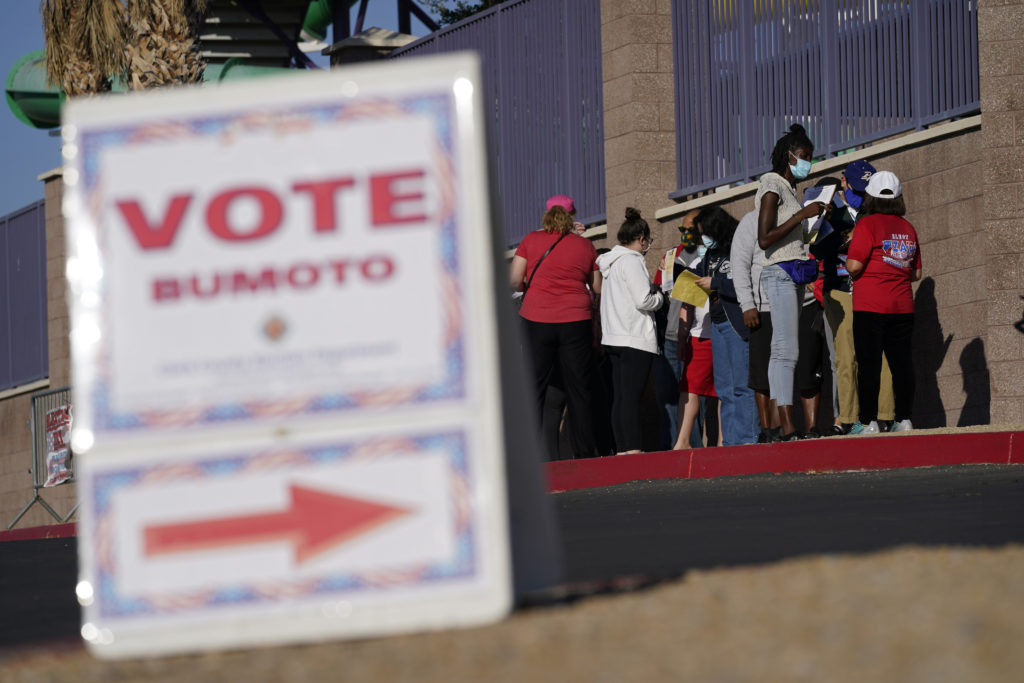
“At one time, getting passing grades in civics and U.S. history were prerequisites for high school graduation. Our biggest mistake was to adopt common core and abandon this.” – Michael Polelle Over five decades ago, Congress passed the Voting Rights Act of 1965. It established standards to protect the voting rights of all qualified U.S. voters. Contrary to liberal psychosis, the Voting Rights Act applies to every voter equally. It set parameters for each state to engrain within its voting laws. To ensure equality, the Civil Rights Act of 1964 was passed to protect the rights of ethnic minorities. But its core provisions, like the Voting Rights Act, protects the civil rights of all Americans equally. Contrary to leftist logic, neither of these gave more rights to one group and less rights to another. Five decades later, many Americans don’t know the Civil Rights Act protects all citizens from age, gender, ethnic and religious discrimination, in addition to minority groups. Government cannot give any form of preference to one group without abridging the same rights that others are entitled to. As Boomers began to feel the pinch of age prejudice, many forgot that age discrimination is a key provision in the Civil Rights Act. And very few seniors ever filed complaints with the Department of Justice about this. “We are marching for the civil rights of the Negros and those of all Americans.” – Martin Luther King Jr Even fewer Americans know why our states were obliged to update their voting laws after the last election. All states laws must comply with provisions in the Voting Rights Act to protect “all voters.” In response to the mayhem during the 2020 election, when blue states made up new laws as they went along, 43 states updated voting laws to prevent a repeat of the insane bedlam that took place in 2020. Citizens asked state lawmakers to ensure that nobody could ever question how anybody who couldn’t get elected dogcatcher in his own state get the most votes in U.S. presidential history. Since the Constitution obligates states to enforce the Voting Rights Act, after the last election, they reviewed all mail-in voting, counting ballots received after Election Day and ballot drop-boxes. All these issues truncated the intent of the Constitution and Voting Rights Acts. Yet in the woke world, if you don’t win the brass ring or can’t hijack it, you bellyache that your voting rights were violated! By law, states are responsible for updating existing election laws when they do not comply with the Voting Rights Act that protects all individual voting rights. Yet progressives and identity groups are squealing like pigs in a bacon factory? Why are they upset with states trying to protect their rights? The woke society is built on double standards. It can’t exist any other way. Wokes make up laws to justify breaking laws they don’t like. Either play the game their way, or they will take their ball away. “I learned that being ‘woke’ is being brainwashed by extremist liberal propaganda.” – Lillian Fang Until the presidential election of 2000, the merits of the Voting Rights Act were seldom questioned. But the fiasco in Florida proved, if progressives want to win badly enough, no law will ever stand in their way. After five weeks of trying to turn Al Gore into a winner, the choice of our nation’s new leader came not from the citizens, but from a 5-4 majority of U.S. Supreme Court justices. Liberal contempt for our voting rights began long before the 2000 election when blue states started moving to all mail-in voting. They had the national media’s pump primed; there was no way Al Gore could possibly lose. When the media abruptly called the election for Gore, they ended up with egg on their faces, and progressives and their liberal attorneys around the U.S. cried out election fraud! “Hi. I’m Al Gore, and I used to be the next president of the United States of America.” – Al Gore Although liberal media pollsters and pundits had been predicting a landslide victory for Al Gore, in the real world Pew Research, Gallop, and other independent groups pictured a much tighter race. They forecasted that fallout from the Clinton-Lewinsky sex scandal would mobilize conservatives against the left’s loose morality. Al Gore lost the entire south and even his home state, Tennessee. In reaction to allegations about voter fraud, hanging chads, and especially mail-in ballots that were supposedly miscounted, Democrats petitioned Washington to review U.S. voting rights again. The 2005 Commission on Election Reform, chaired by liberals Jimmy Carter and former Secretary of State James Baker, concluded that the biggest threat to voting integrity was with mail-in ballots. “We conclude that mail-in voting remains the largest source of potential voter fraud.” – Jimmy Carter Concerns about vote tampering have a long history in the U.S. They helped drive the move to the secret ballot, which all U.S. states adopted between 1888 and 1950. Secret ballots made it harder to intimidate voters and to monitor which candidate a voter had voted for. One University of Florida study found complaints about fraud fell by an average of 14% after states adopted secret ballots. In woke America, facts are an “inconvenient truth.” There have never been more complaints about denial of individual rights, violations of voting rights, and claims of “systematic racism” coming from people who don’t know the rights “they have” and “do not have” than any time in American history. “I have faith in the United States and our ability to make good decisions based on facts.” – Al Gore In 1865, following the Civil War, the 13th, 14th, and 15th Amendments and the 19th Amendment in 1920 guaranteed equal rights and universal suffrage for all Americans. The Civil Rights Act of 1964 and the Voting Rights Act of 1965 protected those rights. That is why we must have voter ID laws. Every illegal vote cast nullifies the votes of the legitimate voters. Still,
Joe Biden nominates 4 for Tennessee Valley Authority board
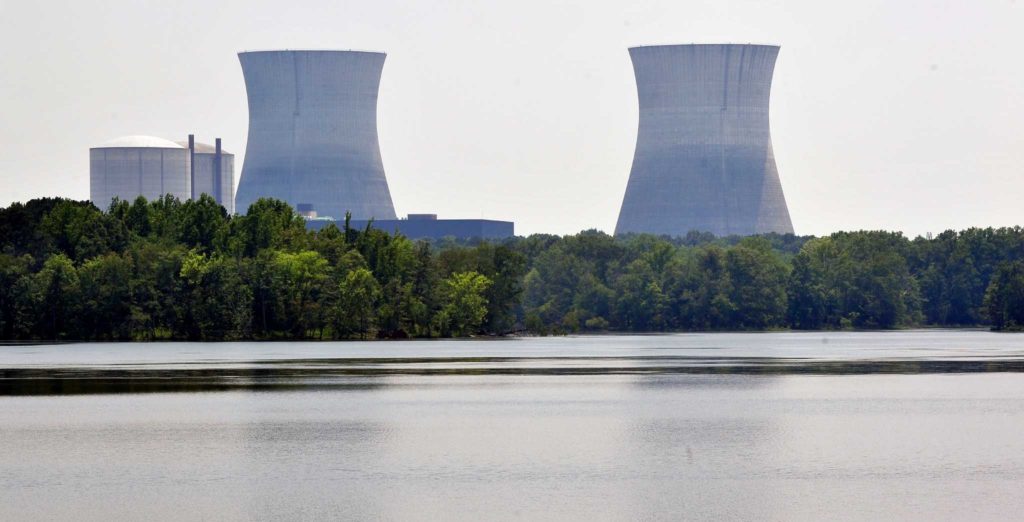
President Joe Biden has nominated four people for the board of a federal utility. The White House announced Tuesday that Biden has picked Beth Geer, Robert Klein, Kimberly Lewis, and Michelle Moore for five-year terms on the Tennessee Valley Authority’s nine-member board. The positions require Senate confirmation. Geer is the chief of staff to former Vice President Al Gore. She serves on Nashville Mayor John Cooper’s Sustainability Advisory Committee. Klein is a retired line foreman for the Electric Power Board of Chattanooga. He also filled roles with the International Brotherhood of Electrical Workers. Lewis is the CEO of a Huntsville, Alabama, engineering, and logistics company. She became the first Black female elected board chair of the Huntsville/Madison Chamber of Commerce and the first minority owner of Alabama’s WTZT-TV TV station. Moore, who grew up in LaGrange, Georgia, and lives in Richmond, Virginia, heads a clean energy nonprofit after leading former President Barack Obama’s sustainability team. The TVA board has two vacancies and two board members whose terms expire in May — chairman John Ryder, former Republican National Committee general counsel; and former coal company executive Kenneth Allen. The Tennessee Valley Authority provides electricity for 10 million people in Tennessee and parts of six surrounding states. Republished with the permission of the Associated Press.
Bradley Byrne: The Electoral College
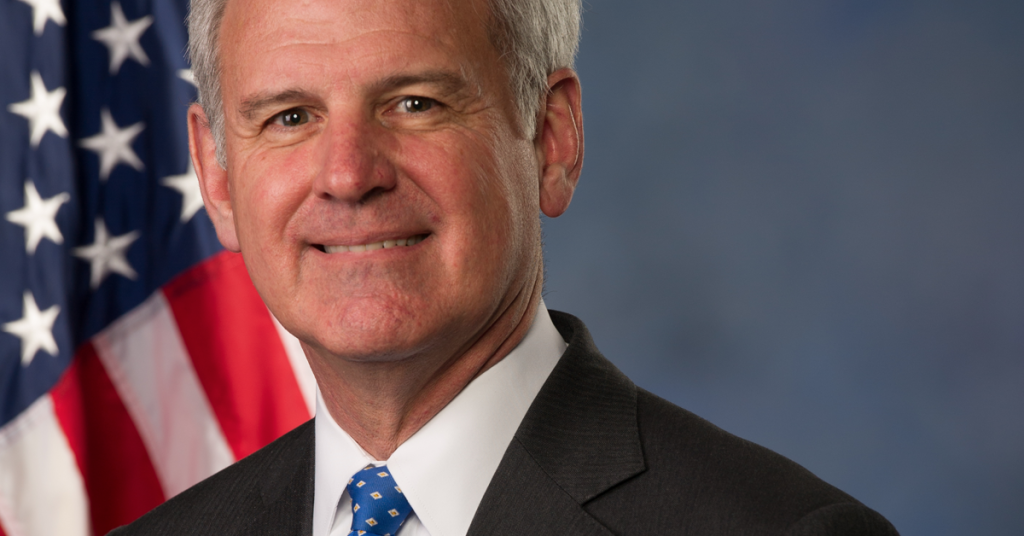
When the members of the Constitutional Convention in 1787 debated how to pick the executive, several options were considered. Some wanted the people to directly elect the president, while others distrusted the people to know enough about the candidates to make that important decision on their own. After all, the election would be held across the entire nation, and with the problems of communication in 18th century America it would be difficult for individual citizens to know enough to make an informed decision about candidates who lived nowhere near them. But the Framers wanted the voters to play a role, and they compromised by giving the decision to electors equaling the number of representatives and senators for each state and empowering the legislatures of the states, whose members were and are popularly elected, to select the manner of appointing those electors. So you and I don’t vote for the president directly. Our state’s electors do. While early on several state legislatures opted to pick the electors themselves, in modern times all state legislatures have voted to have their electors chosen by popular vote. This week those electors met in their respective states and cast their votes. The press reports Vice President Joe Biden received 306 votes and President Donald Trump, my candidate, received 232 votes. Press reports also indicate that in several states where the electors chose Biden, separate groups claimed to be the actual electors and voted for President Trump. There has been a lot of discussion and dozens of audits, recounts, and lawsuits as to who were the legally chosen electors in those states. Despite the hype in the media that these efforts challenging the initial election calls in several states undermine our system, the Electoral Count Act of 1887 actually provides for a time period for such actions. Former Vice President Al Gore took advantage of this time period in 2000, challenging the election until mid-December. Democrats challenged the Ohio electors pledged to President George Bush in 2004, and many Democrats fought through the counting of the vote before a joint session of Congress in 2017, when President Donald Trump was elected. They even challenged the votes from Alabama. Democrats have normalized post general election fights over presidential results. I supported the Trump team’s efforts to get a fair and accurate count of all legal votes. I joined in a “friend of the court” brief, along with 125 members of Congress, supporting the last-ditch effort by Texas and other states, including Alabama, to get the Supreme Court to look into the fact that in several states a person or group other than the state legislature modified election laws ostensibly to accommodate voters in the middle of a pandemic. Whatever the motivation for those modifications, they couldn’t be made by anyone other than the state legislatures; secretaries of state, state supreme courts, election commissions, and even governors cannot do that under the Constitution. Rather than rule on the merits, the Court dismissed the case because, it said, the states didn’t have standing to bring the suit. None of President Trump’s Supreme Court appointees dissented. The last step in the process, as spelled out by the Twelfth Amendment, is for the electors’ votes to be counted formally in a joint session of the new Congress on January 6, presided over by Vice President Mike Pence. The Electoral Count Act allows one or more members of the House or Senate to object to a given state’s electors, but only if at least one member of the other house joins in the objection in writing. Then each house votes on the objection. Democrats tried that in 2000, 2004, and 2016 but failed. My friend and colleague Mo Brooks from Huntsville has said he intends to object to the electoral votes of five states that voted for Biden, but he will have to convince a senator to join with him. So far, with only three weeks left, no senator or senator-elect has agreed to do so. The other hurdle he faces is a Democrat majority in the House that will not vote to take away Biden votes and at least ten Republican senators who have said Biden is the winner. As I will no longer be a member of the House on January 6, I won’t be voting on any objection. But I will be a citizen, and I believe it’s important for all of us to respect the system we follow in selecting a president, set in our Constitution and the Electoral Count Act. That system has served us well for over 200 years and will continue to do so. I will honor our system and our laws by accepting the election results as counted by Congress. I hope we all will. Congressman Bradley Byrne currently represents Alabama’s 1st congressional district. His service in the House of Representatives will end at the conclusion of the 117th Congress on January 3, 2021.
VP-elect Kamala Harris picks Tina Flournoy to be her chief of staff
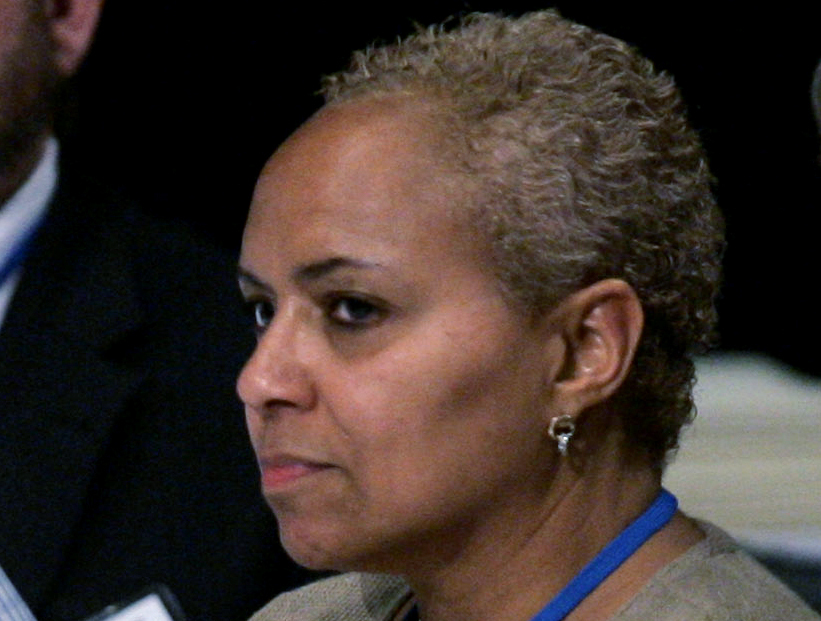
Vice President-elect Kamala Harris has named Tina Flournoy, a veteran Democratic strategist and aide to the Clintons, as her chief of staff, the transition team announced Thursday. Flournoy’s appointment as Harris’ top staffer adds to a team of advisers led by Black women. Harris, who is of Jamaican and Indian heritage, is the nation’s first female vice president. Flournoy joins Ashley Etienne as Harris’ communications director and Symone Sanders as her chief spokeswoman. Flournoy has served as chief of staff for former President Bill Clinton since 2013. That follows a career that took her to top posts at the Democratic National Committee, in the presidential campaigns of former Vice President Al Gore and former Secretary of State Hillary Clinton, and with the American Federation of Teachers. Bill Clinton called her appointment “great news for our country.” “Tina Flournoy is incredibly smart, strong, and skillful, with deeply rooted values. She’s done a wonderful job as my chief of staff for nearly 8 years, and I will miss her—but I’m thrilled about VP-elect Harris’ choice,” he tweeted. Harris also announced Rohini Kosoglu as her domestic policy adviser and Nancy McEldowney as her national security adviser. Kosoglu had served as Harris’ top adviser during the general election campaign. McEldowney is a former ambassador to Bulgaria and has 30 years of service in various diplomatic and foreign affairs jobs. “Together with the rest of my team, today’s appointees will work to get this virus under control, open our economy responsibly and make sure it lifts up all Americans, and restore and advance our country’s leadership around the world,” Harris said in a statement. Former colleagues describe Flournoy as a no-nonsense operative who has both policy and political chops. Matt McKenna, who was Bill Clinton’s spokesperson from 2007 to 2015, noted the historic nature of Harris’ candidacy and said Flournoy will skillfully manage competing demands for her time. “(Harris) represents so many things to so many people, and they’re all going to want some of her time. She needs someone who can honor the historic nature of her candidacy and her victory and her place in the world,” he said. Harris has regularly joined President-elect Joe Biden and offered remarks at briefings on the economy, the coronavirus, and health care since the two won the November election. The transition team has yet to announce whether she’ll focus on any specific issues or initiatives. Flournoy has never held a position with Harris. But Minyon Moore, another former Clinton aide and close friend of Flournoy’s, is assisting Harris with staffing during the transition. It’s unclear if any of Harris’ former Senate staff or longtime political advisers will join the vice president’s office. Republished with the permission of the Associated Press.
Joe Biden moves forward without help from Donald Trump’s intel team
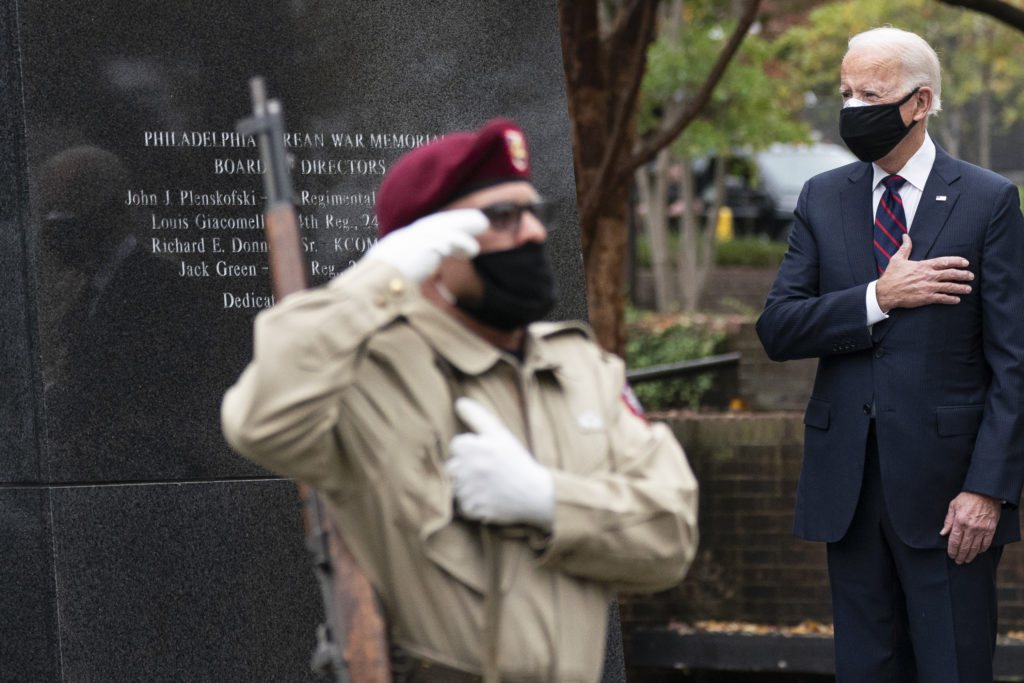
The presidential race was hovering in limbo in 2000 when outgoing President Bill Clinton decided to let then-Gov. George W. Bush read the ultra-secret daily brief of the nation’s most sensitive intelligence. Clinton was a Democrat and his vice president, Al Gore, was running against Republican Bush. Gore had been reading the so-called President’s Daily Brief for eight years; Clinton decided to bring Bush into the fold in case he won and he did. President Donald Trump has not followed Clinton’s lead. As he contests this year’s election results, Trump has not authorized President-elect Joe Biden to lay eyes on the brief. National security and intelligence experts hope Trump changes his mind, citing the need for an incoming president to be fully prepared to confront any national security issues on Day One. “Our adversaries aren’t waiting for the transition to take place,” says former Michigan Republican Rep. Mike Rogers, who was chairman of the House intelligence committee. “Joe Biden should receive the President’s Daily Brief starting today. He needs to know what the latest threats are and begin to plan accordingly. This isn’t about politics; this is about national security.” U.S. adversaries can take advantage of the country during an American presidential transition and key foreign issues will be bearing down on Biden the moment he steps into the Oval Office. Among them: Unless Trump extends or negotiates a new nuclear arms accord with Russia before Inauguration Day, Biden will have only 16 days to act before the expiration of the last remaining treaty reining in the world’s two largest nuclear arsenals. Perhaps U.S. spies have picked up tidbits about the Russians’ redlines in the negotiations, or about weapons it really wants to keep out of the treaty. That’s the type of information that might be in the PDB, a daily summary of high-level, classified information and analysis on national security issues that’s been offered to presidents since 1946. It is coordinated and delivered by the Office of the National Intelligence Director with input from the CIA and other agencies. It is tailored for each president, depending on whether they prefer oral or written briefs or both, short summaries or long reports on paper or electronically. Having access to the PDB also could help Biden craft a possible response to North Korea, which has a history of firing off missiles or conducting nuclear tests shortly before or after new presidents take office. Biden has decades of experience in foreign affairs and national security, but he likely has not been privy to the latest details about how Iran is back to enriching uranium, or the active cyber attack operations of Russia, China and Iran. China’s crackdown on Hong Kong is heating up. And the threat from Islamic extremists, although curbed, still remains. Biden is trying to play down the significance of the delay in getting access to the PDB. “Obviously the PDB would be useful but, it’s not necessary. I’m not the sitting president now,” Biden said Tuesday. He didn’t answer a question about whether he’d tried to reach out to Trump himself on this or any other issue, saying only, “Mr. President, I look forward to speaking with you.” He was also asked about needing access to classified information as soon as possible if Trump doesn’t concede the race. “Look, access to classified information is useful. But I’m not in a position to make any decisions on those issues anyway,” Biden said. “As I said, one president at a time. He will be president until Jan. 20. It would be nice to have it, but it’s not critical.” Biden is familiar with the PDB, having read it during his eight years as vice president. But threats are ever-changing and as Inauguration Day nears, his need for Trump to let him get eyes on the intelligence brief will become more critical. Sen. James Lankford, R-Okla., predicted that the issue of whether Biden will get access to the intelligence brief will be resolved soon. “I’ve already started engaging in this area. … And if that’s not occurring by Friday, I will step in and push and say this needs to occur so that regardless of the outcome of the election, whichever way that it goes, people can be ready for that actual task,” Lankford told KRMG in Tulsa, Oklahoma, on Wednesday. He said Vice President-elect Kamala Harris also should be getting the briefings, which should not be a problem because she already has security clearances as a member of the Senate intelligence committee. While the Bush team had access to the intelligence brief in 2000, an election recount delayed the Bush team’s access to government agencies and resources for more than five weeks. Biden is missing out on all counts: More than a week into his transition, Biden doesn’t have access to the PDB, the agencies or government resources to help him get ready to take charge. “President-elect Joe Biden and his transition team should not suffer a similar delay,” John Podesta, who served as White House chief of staff under Clinton, and Bush’s chief of staff Andrew Card wrote in a joint op-ed published this week in The Washington Post. “We have since learned the serious costs of a delayed transition,” they wrote. “Less than eight months after Bush’s inauguration, two planes flew into the World Trade Center, killing nearly 3,000 Americans.” The 9/11 Commission Report on the Sept. 11, 2001, attacks warns of the danger in slow-walking presidential transition work in general, not just the intelligence piece. The Bush administration didn’t have its deputy Cabinet officers in place until the spring of 2001 and critical subcabinet positions were not confirmed until that summer — if then, the report said. For now, the office of National Intelligence Director John Ratcliffe says it can’t begin talking with the Biden transition team until a federal agency starts the process of transition, which the Trump administration is delaying. The office, which oversees more than a dozen U.S. intelligence agencies, said it must follow
Kamala Harris bringing energy, dollars and more to Joe Biden’s campaign
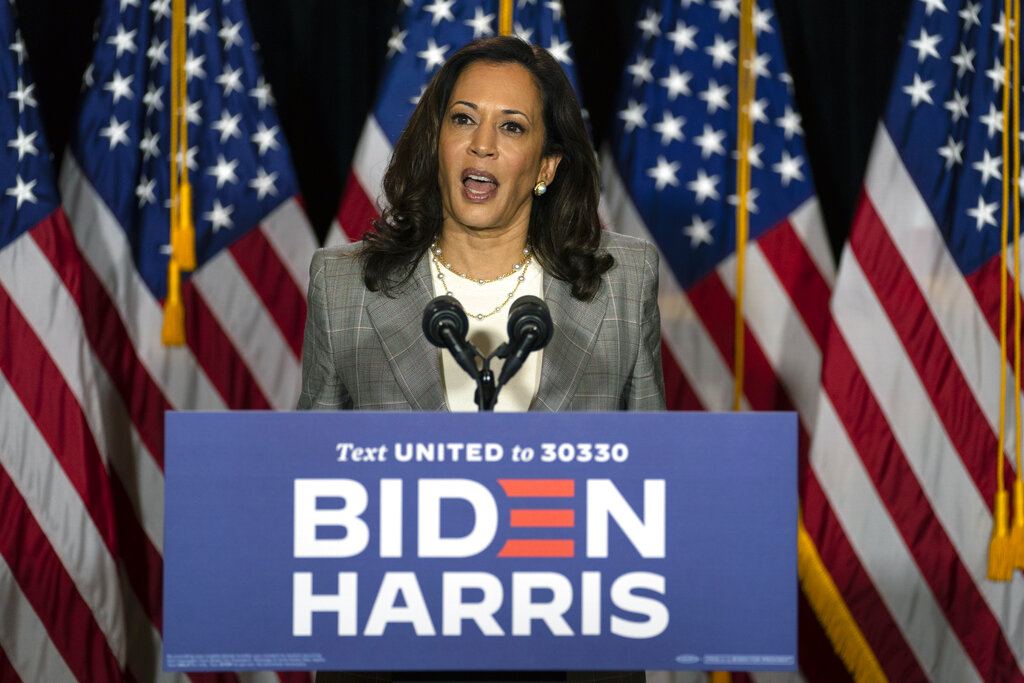
Harris is rapidly embracing her new role.

